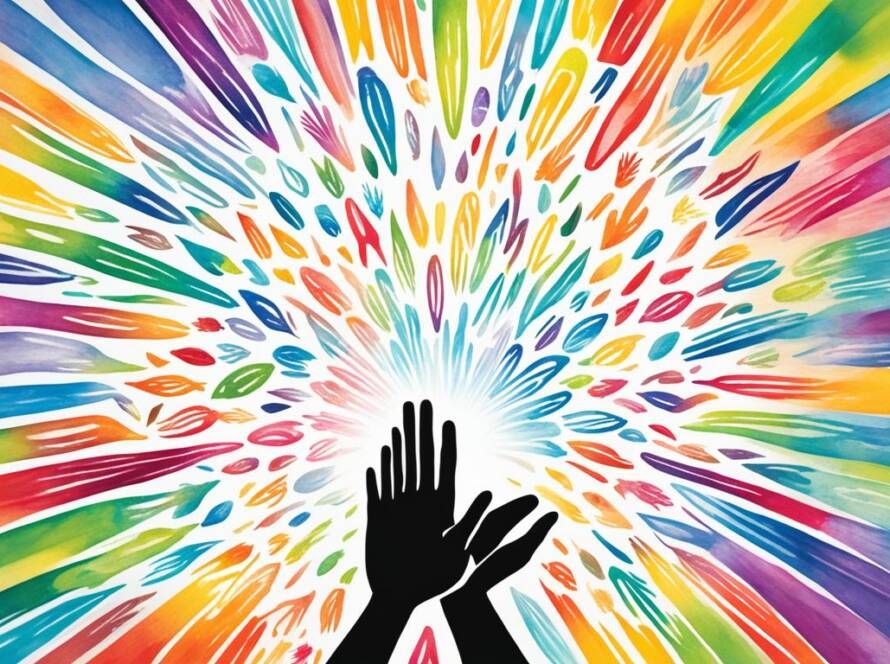Attention deficit hyperactivity disorder (ADHD) and anxiety are two distinct conditions, yet many individuals may experience symptoms of both simultaneously. Therefore, it is essential to recognize and understand the relationship between these two disorders.
ADHD is a neurodevelopmental disorder characterized by a persistent pattern of inattention and/or hyperactivity-impulsivity that interferes with daily functioning. Anxiety disorders, on the other hand, are a group of mental health conditions characterized by excessive fear, worry, or nervousness about everyday situations or events.
Combining the two can be overwhelming for individuals, and many have difficulty identifying specific symptoms and treatment that matches their experience. In this article, we will explore the relationship between ADHD and anxiety, the symptoms, and effective management techniques for both.
Key Takeaways
- ADHD and anxiety can co-occur, and understanding the relationship between them is crucial.
- ADHD symptoms include difficulty focusing, impulsivity, and hyperactivity, and anxiety symptoms include excessive fear, worry, and nervousness.
- Effective treatments for ADHD and anxiety include cognitive-behavioral therapy, medications, and lifestyle changes.
- Combining coping mechanisms and implementing lifestyle changes can help individuals better manage symptoms of both ADHD and anxiety.
- Children and adults with both conditions face unique challenges in managing their symptoms, and seeking professional help is essential.
Symptoms of ADHD
Attention Deficit Hyperactivity Disorder (ADHD) is a neurodevelopmental disorder characterized by difficulty in sustaining attention, impulsive behavior, and hyperactivity. Individuals with ADHD often experience symptoms such as:
- Difficulty focusing: This is a hallmark symptom of ADHD. People with ADHD have a hard time maintaining their focus on one task or activity for extended periods.
- Impulsivity: Individuals with ADHD may act impulsively without considering the consequences of their actions.
- Hyperactivity: People with ADHD may have difficulty sitting still, and may always be on the go.
- Anxiety symptoms: ADHD and anxiety symptoms can overlap, and individuals with ADHD may experience symptoms such as excessive worry or restlessness.
It is essential to note that ADHD symptoms can vary from person to person and can appear in different ways. For example, some individuals may have difficulty with organization or forgetfulness, while others may have trouble with time management. Furthermore, ADHD symptoms can also change in severity over time, making it challenging to manage.
Treating ADHD Symptoms
There are several treatments available for ADHD. Non-medication approaches such as cognitive-behavioral therapy (CBT) and behavioral therapy can be effective in helping individuals manage their symptoms. Additionally, medication such as stimulants are often recommended to help manage ADHD symptoms. It is essential to speak with a healthcare provider to determine the best course of treatment for individual needs.
Symptoms of Anxiety Disorders
Anxiety disorders are a group of mental health conditions that share common symptoms and can significantly affect an individual’s life. Generalized anxiety disorder, social anxiety disorder, and panic disorder are among the most common types of anxiety disorders.
Common symptoms of anxiety disorders include:
- Feelings of nervousness, tension, or restlessness
- Inability to relax or concentrate
- Increased heart rate and breathing
- Sweating and trembling
- Uncontrollable worry or fear
For individuals with both ADHD and anxiety disorders, symptoms may intersect, making it difficult to differentiate between the two. For instance, difficulty concentrating is a symptom of both ADHD and anxiety disorders. Identifying the root cause of symptoms can help determine which treatment options are most effective.

“Anxiety symptoms may cause people to avoid situations that trigger or worsen their distress, which can lead to additional problems with school, work, and relationships.”
Treatment Options for ADHD
ADHD is a neurodevelopmental disorder that affects both children and adults, and can have a significant impact on daily life. Fortunately, there are a variety of treatment options available to manage its symptoms.
Non-Medication Approaches
Behavioral therapy can be an effective approach to treating ADHD, particularly in children. This type of therapy involves teaching individuals with ADHD specific skills and strategies to manage their symptoms, such as organizational techniques and time management. Lifestyle changes, such as getting regular exercise and sufficient sleep, can also be beneficial in managing symptoms.
Medication Options
Medication is another common treatment option for ADHD. Stimulant medications, such as Ritalin and Adderall, are often prescribed to manage symptoms. These medications work by increasing levels of dopamine and norepinephrine in the brain, which can improve focus and concentration. Non-stimulant medications, such as Strattera, may also be prescribed for ADHD management.
It is important to note that ADHD medications may have potential benefits and side effects. Common side effects may include loss of appetite, trouble sleeping, and mood changes. It is important to discuss any concerns with a healthcare provider.
“While medication can be a helpful tool in managing ADHD symptoms, it should not be the sole treatment approach. A combination of medication and behavioral therapy can be highly effective in managing symptoms and improving quality of life for individuals with ADHD.”
Treatment Options for Anxiety
For individuals with anxiety disorders, treatment options may vary depending on the specific type of anxiety disorder. Two primary approaches include cognitive-behavioral therapy (CBT) and exposure therapy. CBT is a form of talk therapy that helps individuals identify and challenge negative thought patterns and behaviors that contribute to anxiety. Exposure therapy involves gradually exposing individuals to anxiety-provoking stimuli in a controlled environment to help them overcome their fears.
Other therapeutic approaches may include relaxation techniques, such as meditation and deep breathing exercises, or support and symptom management groups. These can be excellent complementary treatments to psychological therapies.
In addition to therapy, medication can also be an effective tool in managing anxiety disorders. Anxiolytic medication, such as benzodiazepines, are commonly prescribed for short-term anxiety relief. Antidepressant medications, such as selective serotonin reuptake inhibitors (SSRIs), can also be used to manage chronic anxiety.
It’s important to note that medication should always be used under the supervision of a healthcare professional and in conjunction with therapy. Additionally, like any medication, anxiety medications may have side effects and can be habit-forming.
Managing ADHD and Anxiety
Managing ADHD and anxiety together can be challenging, but with the right strategies, individuals can learn to better control their symptoms and improve their overall quality of life.
Developing coping mechanisms is a crucial step in managing ADHD and anxiety. These may include practicing mindfulness and deep breathing exercises, creating a consistent daily routine, and maintaining a healthy diet and exercise regimen.
In addition, implementing lifestyle changes can also be helpful in managing symptoms. This could include reducing exposure to stressors, such as loud noises or bright lights, and engaging in enjoyable and calming activities, such as reading or spending time in nature.
It is important to note that the management of ADHD and anxiety may differ depending on the individual’s age. Children with ADHD and anxiety, for example, may benefit from play-based therapies and parental support, while adults may require more intensive therapy or medication management.
Coping Mechanisms for Managing ADHD and Anxiety
| Coping Mechanisms | Description |
|---|---|
| Practice Mindfulness | Engage in activities such as meditation or yoga to cultivate present-moment awareness and decrease stress levels. |
| Establish a Consistent Routine | Create structure and predictability by establishing a consistent daily routine that integrates self-care, work, and leisure activities. |
| Maintain a Healthy Lifestyle | Eat a balanced diet, exercise regularly, and get enough sleep to support physical and mental well-being. |
| Avoid Stressors | Sensory triggers such as loud noises, bright lights, and other environmental stressors may exacerbate symptoms. |
| Engage in Calming Activities | Participate in activities such as reading, spending time in nature, or engaging in a creative hobby to reduce stress levels and promote relaxation. |
“It’s important to find what works for you in managing ADHD and anxiety. It may take some trial and error, but with patience, perseverance, and the right support, it is possible to manage both conditions effectively.”
ADHD And Anxiety Disorder
In conclusion, understanding the link between ADHD and anxiety is crucial for effective management of both conditions. By recognizing the symptoms of each disorder and how they can overlap, individuals can seek appropriate treatment options, whether that be behavioral therapy, medication, or lifestyle changes. It’s important to note that managing ADHD and anxiety can be a unique challenge for both children and adults, but with proper care and support, individuals can experience improved quality of life.
Overall, it’s essential to approach the management of ADHD and anxiety with a hopeful and positive mindset. While it may take time to find the right treatment plan, there are many options available, and it’s possible to find relief from symptoms. By working with healthcare professionals and developing coping mechanisms, individuals can learn to manage their symptoms and live a fulfilling life.
FAQ
What is the relationship between ADHD and anxiety?
ADHD and anxiety often coexist and can influence each other. Research suggests that individuals with ADHD are at a higher risk of developing anxiety disorders. Similarly, those with anxiety disorders may experience symptoms resembling ADHD due to difficulties with attention, focus, and impulsivity.
What are the symptoms of ADHD?
Common symptoms of ADHD include difficulty concentrating or staying focused, impulsivity, hyperactivity, forgetfulness, and poor time management. These symptoms can vary in severity and may interfere with daily activities and relationships.
What are the symptoms of anxiety disorders?
Symptoms of anxiety disorders may include excessive worry, restlessness, irritability, trouble sleeping, racing thoughts, muscle tension, and panic attacks. Different types of anxiety disorders can present with specific symptoms, but they generally involve persistent fear or excessive anxiety.
What are the treatment options for ADHD?
Treatment for ADHD typically involves a combination of behavioral therapies, lifestyle changes, and medication. Behavioral therapies can help individuals develop coping strategies and improve organizational skills, while medication such as stimulants or non-stimulants may be prescribed to manage symptoms.
What are the treatment options for anxiety?
Treatment for anxiety disorders may include therapy, such as cognitive-behavioral therapy (CBT) or exposure therapy. Medications, such as selective serotonin reuptake inhibitors (SSRIs), may also be prescribed to reduce anxiety symptoms. The specific treatment approach depends on the individual’s diagnosis and severity of symptoms.
How can ADHD and anxiety be managed together?
Managing ADHD and anxiety often involves a multimodal approach. This may include combining therapy techniques tailored to address both conditions, implementing stress reduction techniques, creating structured routines, and exploring self-care practices. Seeking support from healthcare professionals and building a strong support network can also be beneficial.
- ADHD and Anxiety – Understood https://www.understood.org/en/learning-thinking-differences/child-learning-disabilities/add-adhd/adhd-and-anxiety
- Adult ADHD (Attention Deficit Hyperactive Disorder) – Anxiety and Depression Association of America, ADAA https://adaa.org/understanding-anxiety/adult-adhd
- Anxiety and ADHD in Children – Child Mind Institute https://childmind.org/article/anxiety-and-adhd-in-children/
- The Correlation Between ADHD, Depression, And Anxiety – Medical News Today https://www.medicalnewstoday.com/articles/326500
- Anxiety and ADHD: How They’re Linked – WebMD https://www.webmd.com/add-adhd/childhood-adhd/anxiety-adhd
- ADHD and Anxiety Disorders – Psych Central https://psychcentral.com/adhd/adhd-and-anxiety-disorders




